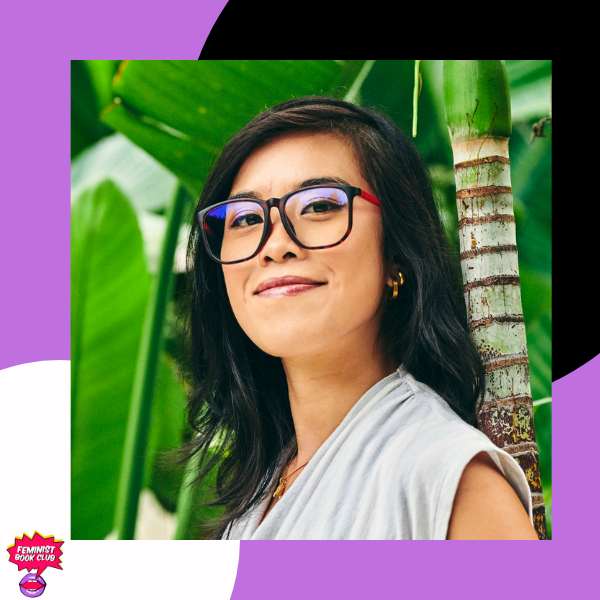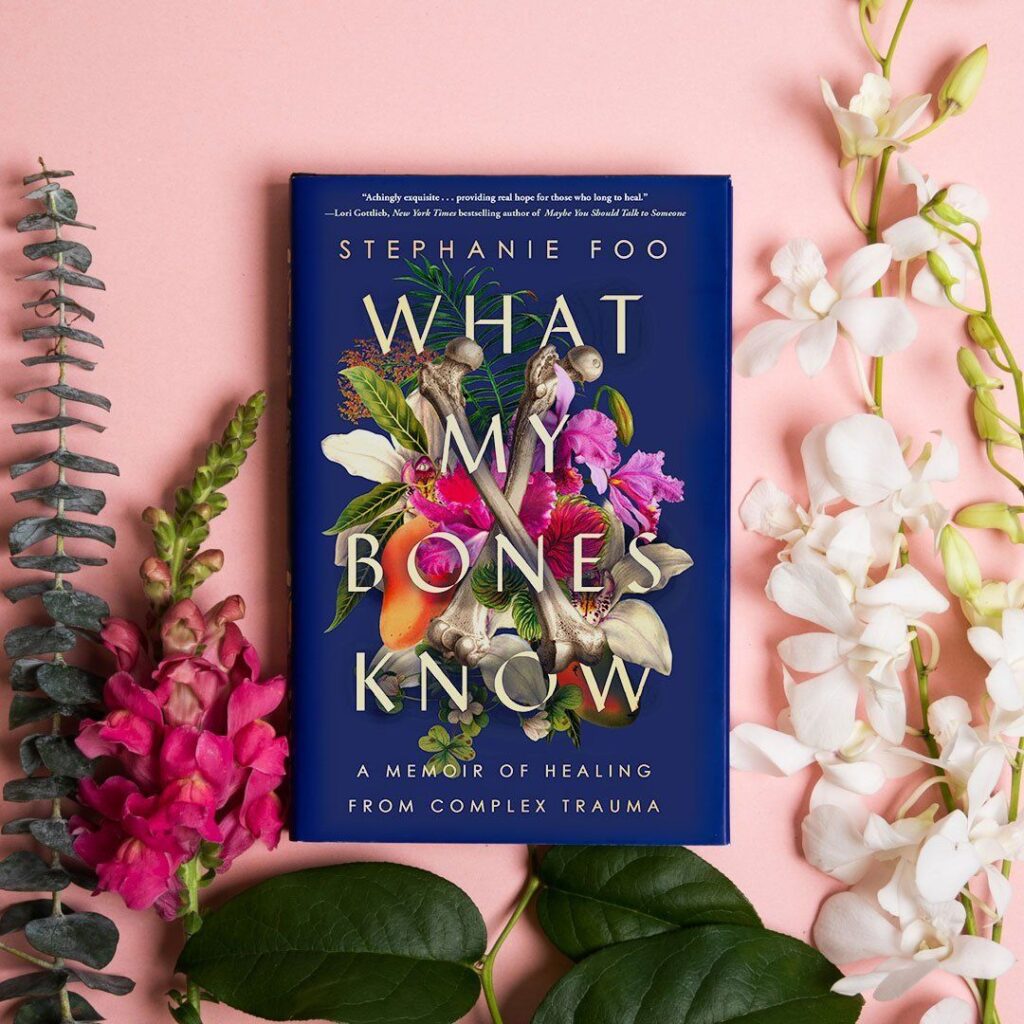On Tuesday, May 30, Feminist Book Club members had a Zoom hang with Stephanie Foo, the author of What My Bones Know. Here are some of the highlights of our conversation from that evening.
What does being feminist mean to you?
Wow, that’s hard because I can’t even consider an alternative. Being feminist is the default. I guess it means believing in equality and championing women and being very proud and excited to be a woman and to love women every day.
This book has been in the world for a while now and it has gotten into many people’s hands. What have you learned about healing, about growth, and about mental health in the time that this has been out?
I wrote the book because there were so few resources for people with complex PTSD, specifically, first person stories. Not having that made me feel like this was a very rare condition and that I was alone and a freak and the only person who experienced the symptoms. As I researched the book, I came to believe that that was not true. Understanding that there is a huge community of us survivors out there, who have sadly experienced similar stuff, but also have become incredible human beings. I’ve had farmers reach out to me, and teachers, and therapists, and doctors, and educators, and moms, and lots of really incredible, admirable people. [I’ve found that] I’m not alone at all and not freakish. And that’s been really validating.

We’d love to know more about the writing process, especially considering that you tackled such an emotional topic. What was the writing process like, from start to finish?
Yeah, so I thought it was really important. Like when I was diagnosed, I think one of the things that I had to grapple with was that my self-worth had come from work and the validation gotten from achievement throughout my whole life. I needed to sort of– walk away from that. And so my healing process is very separate from my writing process. When I was healing, my focus was on getting better and not on doing it in a pretty, narrative way. You know, I was just living it and, whatever writing I was doing was not crafted to be beautiful. I would go to a therapist appointment and then, I’d go to a cafe afterward and then journal and word vomit. I was not intending it to ever be read by anyone except myself. When I felt like I was in a much better and healthier place, that’s when the actual writing started. And so I was able to take all these journals from my time spent healing and from the rest of my life and use that as source material to craft a narrative.
But I think that was really important to the process because I was coming to the writing portion from a healed perspective. So it was much less raw and painful to do that writing. It was sort of scientific and journalistic almost. Also, I was able to come to the writing process with a lot of forgiveness and kindness for myself and approach it with perspective, to take care of other survivors. Those stages of having empathy and kindness for myself and all those stages and therefore any readers. At those stages, which was really important to me because I didn’t, I wanted to take really good care of people with C-PTSD. Obviously, it’s really hard to read trauma books and to live through this. I just wanted people to feel kind of held.
What was the editing process like? Did that feel personal? Were you taking it personal or were you able to kind of step away and take it a more objective perspective on the writing?
I was really lucky with my editor. The hardest part to write was the first 50 pages. The first 50 pages are kind of the only parts of the book where I’m really going through my childhood trauma in a visceral way. The rest of the book was actually relatively quick to write. The first 50, I just had to write like, 35 times or something. Because it was so hard to give a sense of the severity of what I went through without making it too triggering but also like making it entertaining, which seems gross but you have to keep some people’s attention, right? I remember getting very mad when my husband tried to edit it. It felt very dissociated… I had to explicitly get in front of that and write that in the book. One of my final drafts and I said; “How did it feel? I don’t know how it felt and fuck you for asking. Sorry, I’m dissociated. I can’t really access that.” That was like the hardest part to write and to be edited. The rest was easy— it made a lot of sense.
At first, I was trying to be very comprehensive, including the Black experience and the whole Cambodian experience and all these different research papers. My editor had to remind me that this is a memoir. Let’s focus on your experience, your narrative. She was like, the more personal you are, people from different walks of life will be able to take from you and see themselves in you even if you don’t expect that. And that was very true and I’m glad that I trusted her with that.
You are embarking on a new life stage. It’s very scary to be looking parenthood in the face, especially with your childhood trauma. I want to know what you are most looking forward to as a new parent.
This is such an Asian answer, but feeding the kid. Introducing them to delicious things.
I’m also excited to see Joey [my husband] as a father. That’s really exciting to me. I think he’s very cute with kids. And he promises that, there’s just gonna be lots of cuteness and that. That is what I need to be excited for. He’s like, there’s gonna be cuteness every day.
You dedicate a lot of the end of the book to these close readings of your therapy sessions. It’s kind of meta therapy where you’re talking about therapy in therapy. Then you go to the Google document where you’re transcribing and also talking about the session and writing that in a book. Can you talk a little bit more about these different layers of this experience?
The primary thing that it gave me — that is hard to hold on to now and other relationships often because of the shame associated with C-PTSD— At the moment, it really allowed me to get around my shame and get to curiosity. The format allowed me to get really intellectual and not so emotional.
What are you reading these days?
I just finished Elliott Page’s new book Pageboy. And I just finished Angie Kim’s new book, Happiness Falls, which was a very juicy mystery. I loved it. And I’m also reading a bunch of parenting books because that’s the priority right now, I think.
_____________________________________________________
Feminist Book Club now has a Spotify! Check out our podcasts …. here! And if you’re not a member yet and would like the chance to hang with authors like Stephanie Foo, we’re waiting for you…


